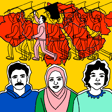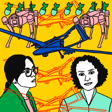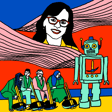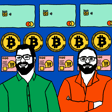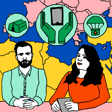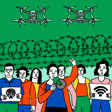
3.7 Living in the Future with Rahel Aima
Writer and art critic, Rahel Aima, who grew up and currently lives in Dubai, talks to us about living in the Gulf, a region rapidly developing itself as the place to be for smart cities and high-tech living.
Rahel explores a concept she has been thinking about for some time, the Khaleeji Ideology, which meets at the intersection of technology, economy, the environment and nation building, as a way of understanding developments in the contemporary Gulf.
This episode also features comment from Michael Mason, Director of the LSE Middle East Centre and Professor of Environmental Geography at LSE, who explores the rise of “progressive” urban development projects in the Gulf, and whether technology can be the solution to pressing environmental challenges of our time.
Rahel Aima is a writer, critic, and editor from Dubai. She writes about art, technology and the Gulf. Her work has been published in Artforum, Artnews, ArtReview, The Atlantic, Bookforum, frieze, Mousse and Vogue Arabia, amongst others.
Read Rahel’s ‘The Khaleeji Ideology’ here: https://www.e-flux.com/architecture/horizons/498319/the-khaleeji-ideology/.
